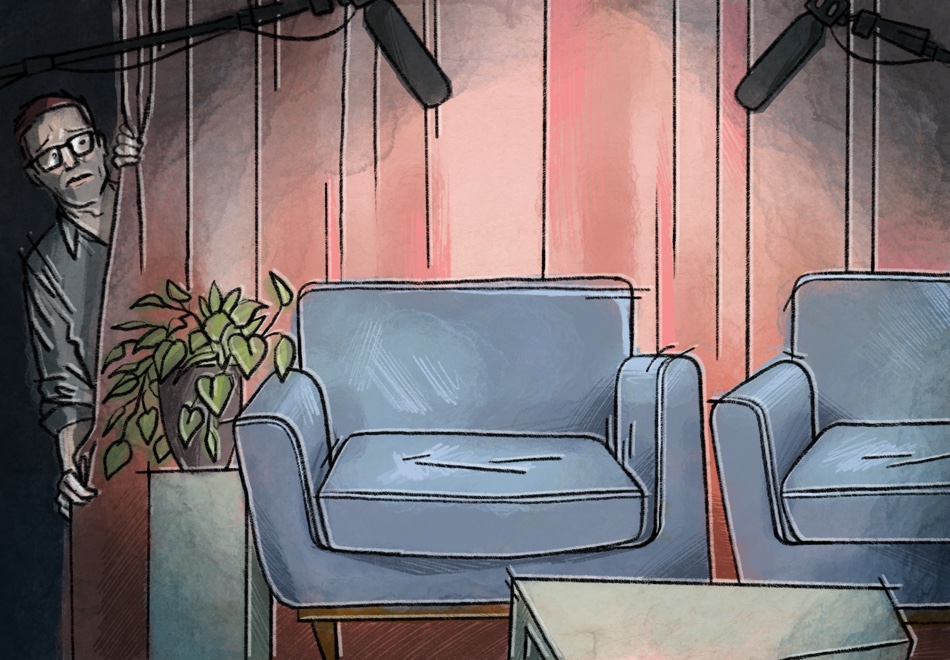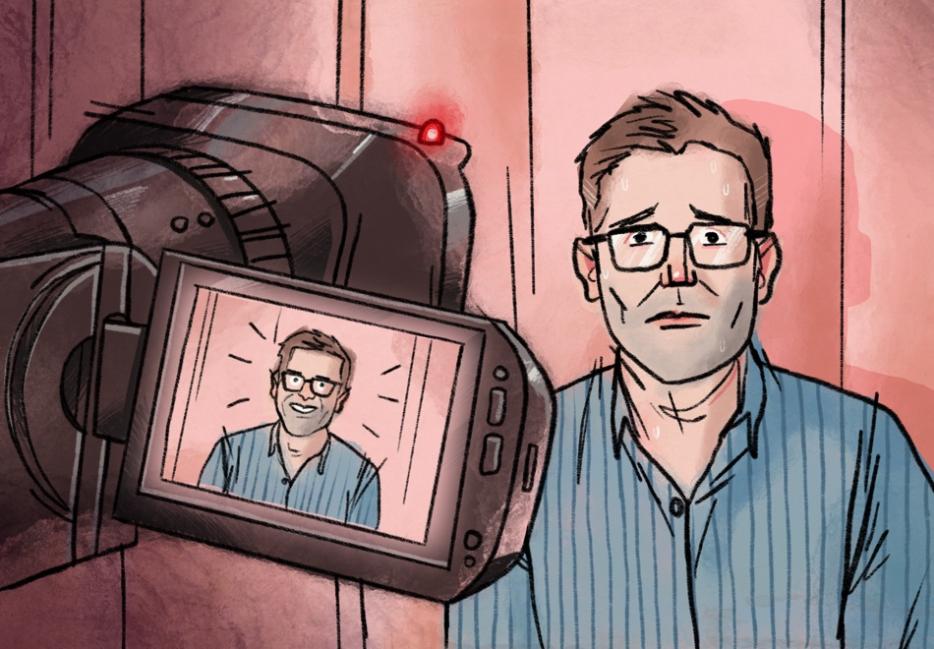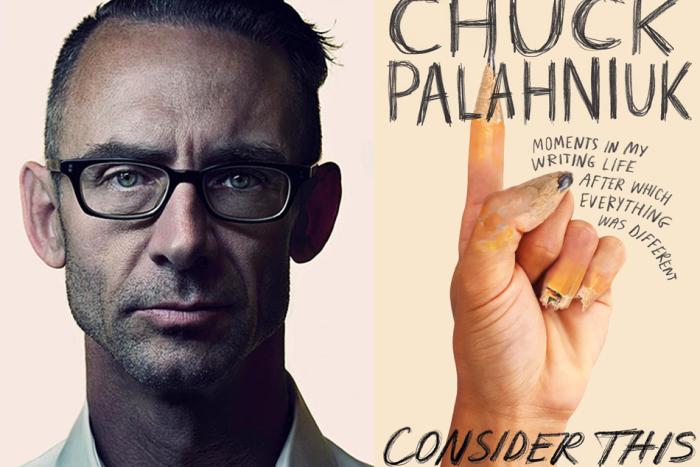What were we obsessed with, invested in and plagued by in 2019? Hazlitt’s writers reflect on the issues, big and small.
For better but mostly for worse, I have always thought of the jobs I’ve had as fundamentally someone else’s business. My work life, since the beginning, has been a matter of digging myself out from under things dropped onto me by managers for reasons I only sort of understood or cared about. Other tasks seemed to have just materialized on their own somewhere between the ionosphere and the drop-ceiling, and those landed just as heavily. I sense that most jobs are at least a little bit like this.
In the early days, I did not bring my work home, in the literal or the emotional sense, because it was the sort of thing that could only really be done, in the literal and the emotional sense, in the fluorescent mehscape of an office. I did not ask questions about why I was doing any of it, because the work itself—forcing search keywords into descriptions of luxury condominium buildings like butter into a foie gras goose, or taking information that was trapped in one digital field and re-typing it into another more useful one, or standing over a thrumming scanner in clothes I couldn’t remember buying—was so transparently inessential as to foreclose even the possibility of an interesting answer. It was something I did for money, and while I did it grudgingly it’s worth noting that I was then doing everything else in my life just as grudgingly. I applied myself more assiduously to drinking in bars with my friends and writing short stories in which I visited wry but richly deserved punishments on people very much like me, but I treated all of it as an imposition that I would just have to endure on my way to wherever I was going. I walked from one waiting room into another into another, for years.
The first two-thirds of my working life were a bleary hungover skein of unrewarding and luridly meaningless jobs, some of them officially temporary but all of them unofficially so. I was later pulled up into some rewarding but extremely precarious staff editorial gigs, which was much better. For the first time, I cared about the work I did and the people I worked with, but I was invariably pivoted or pushed out of those jobs after a period that did not ever exceed two years, into adrenalized and harrowing jags of freelance freefall. I did not always or even often understand why those jobs kept being eliminated, but I knew just enough to understand that 1) there was probably a reason of some kind, and 2) I would probably disagree with it even beyond the consequences that notional reason visited upon me, but 3) none of it was strictly my fault, or even probably the fault of the superiors who had been tasked with giving me the bad news.
There were systemic forces at work, broader strategies and gambits, industry trends to be hedged against or surfed upon. The resulting consequences—the strange new work initiatives or the laying out of new and very different priorities or whatever—landed just as heavily on me as all the older and more obviously preposterous stuff used to. Strange new duties arrived like weather; changes just sort of happened, and kept happening. We organized the newsroom at one of my old workplaces, and what was initially thrilling and even moving about that work—all these talented and confident and ground-down people crowding into a conference room, each revealing with some shame and surprise that the weather had in fact been very bad of late above their cubicles, too, brutally bad for years in some cases—became something stranger once we finally got management to meet with us. We had long debated amongst ourselves, first in bars and then as a bargaining unit, whether the people above us were feckless or actively venal, merely kind of dumb or actually casually cruel. It quickly emerged that they didn’t really have anything in mind at all, at least where we were concerned.
That company had always prioritized video, and had often done it well in its way, which amounted to sending young dudes to Liberia or Kashmir or East St. Louis to talk with the locals and sometimes shoot a gun. The type of video that we were told one day that we were going to be doing was much different. Our videos would fulfill a provision in a deal that the company had signed with a cellular phone company’s startup streaming service; that service needed videos, which maybe could only be viewed by that company’s subscribers and quite possibly would be viewed by no one at all, and we would make those. And so, every couple of weeks, we would write short scripts and go sit in a part of the company’s new showcase office space that afforded sufficient room and light and views of other, cooler employees doing things in the background. There we would talk into the camera about a story we’d written, or a thing that was happening; the videos were edited down to 90 seconds. It’s hard to know what happened from there, and the streaming service no longer exists; to my knowledge, these videos are nowhere to be found online. Doing the videos seemed, then as now, more or less the same as not doing them. Again, it was my job but not really my business.
***
It is still unclear just how much people have ever wanted to watch video online, although it is well known by now that the viewership numbers that Facebook presented to advertisers back in 2015 were inflated by something like 80 percent. The delirious rhetoric that accompanied that push—“We’re entering this new golden age of video,” Mark Zuckerberg said in 2016, “I wouldn’t be surprised if you fast-forward five years and most of the content that people see on Facebook...is video”—makes that figure seem modest. In 2018, some advertisers filed a lawsuit against Facebook alleging that it knew its video figures were wrong at the time, and that the figures were inflated by more like 150 to 900 percent; Facebook has copped to making a mistake, but denied that it did so with an eye on deceiving advertisers.
At any rate, it is also well known that this overinflation—feel free to swap in “brazen lie” here, if you want—had a number of unpleasant and unfair consequences for people working in online media. Resources were reallocated to video stuff that no one really wanted, and people lost their jobs as a result. Multiple websites pivoted themselves more or less out of existence, seemingly due in large part to peer pressure; sites could look at their own traffic and see that people did not really watch very much video, but just assumed that Facebook knew something they didn’t. In 2017, Fox Sports eliminated the written word from its website entirely, replacing columnists and features and game stories with videos of ovoid men heatedly pretending to be upset about college football. Traffic to the website declined by 88 percent in the months after the change. When I was laid off from my previous job, in July of that year, the company explained it as the result of a decision to “put more resources into video production.” They laid off everyone on our site’s video team, too, but again I assume they had their reasons, or didn’t.
My next workplace understood video not as the secret future of the internet, but as a useful if modest part of an uneasy present. The sites that comprised the larger company were popular and profitable and powerfully in flux, as they had been ever since an aggrieved tech billionaire, using a honeybaked WWE antique as a cutout, successfully sued them into bankruptcy. The coterie of venture capitalists that had bought the sites at a discount briefly attempted an ambitious pump-and-dump asset-flip, then punted and brought in some consultants to justify and oversee layoffs and buyouts in advance of a different and more desperate kind of sale. Everything at the place atrophied as ownership looked for and found ways not to spend money on workers and work it no longer even pretended to care about. The satellite office where we shot our videos emptied first of people, then fixtures and furnishings. On the last day there, before management let the lease run out, I booted a wildly oversized tennis ball, one of the inexplicable promotional doodads that had been left behind, and knew that, wherever it landed, it could not hit anything that could break or wasn’t already broken.
Strangely, for all the ambient hauntedness of that moment, this was also one of the happiest and most productive times I’ve had at any job. Ownership didn’t just not-care about what we were doing, but was actively and obviously not paying attention to any of it; the plugger sent up from Miami to oversee the sites before the sale seemed not to have even heard of them before. But as long as we stayed within the budgets agreed-upon back when everyone was still pretending to care, we could do pretty much whatever we wanted. The lack of institutional support necessarily limited the scope, but the totality of that neglect allowed us to try things, and keep working on them until they got good.
Within these limitations and in that vacuum, the production staff created a series of small and silly video series built around various people sitting together and doing various stupid things—participating in oblique open-ended competitions, parsing and rating old NBA jerseys purchased at thrift stores, unwisely attempting to eat 50 scrambled eggs. The tone of the videos was convivial and welcoming and, I thought, rather relaxing to watch; an online friend remarked that they served a sort of ASMR function for him. A tossed-off blog post that had grudgingly become a self-satirizing feature on Facebook Live—everyone was still sucking up to Facebook, then—was reimagined as a recurring bit in which I and some willing co-workers opened old packs of trading cards and did our best to remember the players whose cards we found. A reader sent a big printer box full of loose baseball cards from the 1980’s and ’90’s to the office without a return address, and we opened it and talked about those cards on camera. It was all just about as goofy as it sounds, but the videos built an audience over time, despite or because of how low-key and similar they were. My wife’s aunts passed around a video of me explaining how various plaid shirts made their way into my closet; online friends memed it as kindly as possible. The producers were the reason that any of this worked, but I felt a part of the process in a way that I hadn’t ever been before. I cared about the videos being good, and the people making them cared about them being good, and other people—not the people paying for them, of course, but other people—cared about them, too. I was proud of that.
The sale, when it finally came, put our network of sites in the hands of a private equity concern; an irascible veteran digital media executive, whose personal fortune had been built running grim and nondescript content mills years earlier, put up some of his own money in that deal and installed himself as CEO. He arrived with a reputation for picking fights and cutting corners, and swiftly got to work doing both. People began to leave and weren’t replaced and the CEO busied himself hiring men he had worked with a decade earlier. None of those guys were what you might call big readers, either, but this time that didn’t protect us. They jammed the sites with advertisements until the pages stuttered and stalled and refused to load; readers complained, those complaints were forwarded upstairs, and the pages grew only more choked. Word would periodically come down that the CEO was furious about, say, a video in which my co-workers competed to identify different brands of yogurt in a blind taste test. It was never clear why, and he’d shortly get enraged about something else, but none of it inspired much confidence. “They’re playing house,” a longtime executive at the company told me of the new CEO and his crew one night at a bar, shortly before he left the company.
I learned about the first big advertising deal that new team landed the same way everyone else did, which was that I suddenly heard my own voice coming from my computer’s speakers every time I loaded a page on the website. The deal, we were later told, could deliver up to $1 million in revenue provided we were able to deliver something like 15 times the video exposures we currently did across the network. Because we did not have anything like the staff or infrastructure to make that many more videos, it was decided that the ones we had would play automatically in a small window at upper left on every page; immediately following an advertisement for the aforementioned insurance company, a second video would also begin playing, with sound, in the middle of every page.
[tweet_embed]https://twitter.com/david_j_roth/status/1187045902961258501[/tweet_embed]
So I found myself on every page of the site, muttering or chuckling or just sitting in some strange stooped way in one or more of our videos. What was for people visiting the site just the latest experiential offense among many was, for me, both an unsettling manifestation of the self-consciousness I felt about my personal pivot to video and something stranger. Much of my job, there and everywhere else I have worked, has amounted to wading every day into the internet’s sprawling garbage lagoons in search of eye-catching chunks of floating trash that I might show to other people on the off chance that it might amuse or disgust them; I did not always enjoy the smell, but I’d worked enough other jobs to know that there were worse places to spend your day. It was jarring, as I became the ubiquitous face of the spammily cretinous new regime, to find that I was myself now part of that chaos—it was my face and voice, decontextualized and unbidden, pouring out of that pipe. I couldn’t stop it, but it doesn’t stop. So I chased myself around the page, suddenly much more noise than signal.
There’s only ever so much you can control at any job, of course. You make the things you make as good as you can, at which point they are not really yours anymore, or anyway not yours to control. In time, I and everyone I worked with left that last job; the part that was ours was just shrinking too fast. And yet I still go back to the garbage lagoon, because it still feels like my job and because I don’t know where else to go. So I bring you this. Is this anything?







